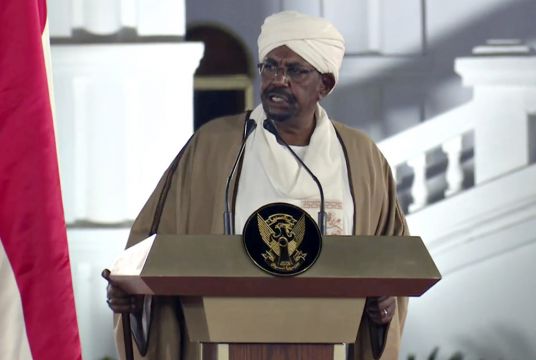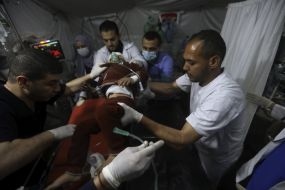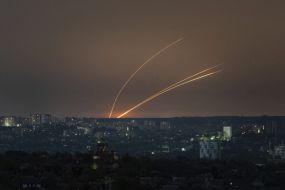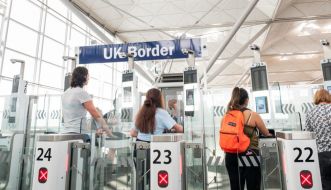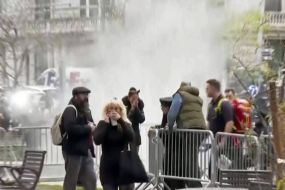An attack on the prison holding deposed Sudanese president Omar al-Bashir has raised questions about his whereabouts, with one of the warring sides saying he is being held in a secure location and the other alleging he has been released.
Al-Bashir, who ruled Sudan for three decades despite wars and sanctions, was overthrown during a popular uprising in 2019. He is wanted by the International Criminal Court (ICC) for genocide and other crimes committed during the conflict in Sudan’s western Darfur region in the 2000s.
He and other former top officials accused of atrocities have been held in Kober prison in Khartoum for the last four years, as authorities have declined ICC requests for them to be handed over.
The Sudanese military and the paramilitary Rapid Support Forces (RSF), who together removed al-Bashir from power during mass protests, are now battling one another across the capital.
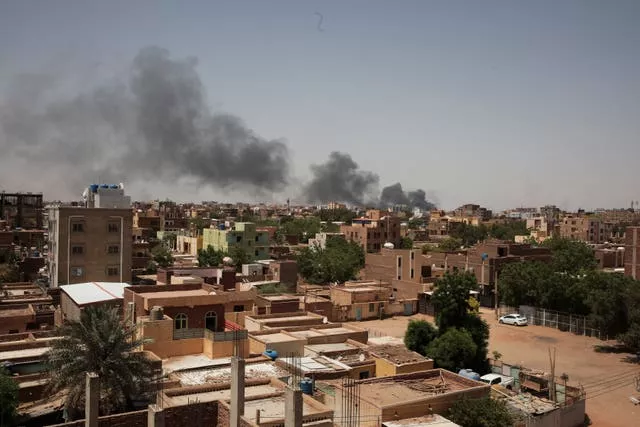
The fighting reached the prison over the weekend, with conflicting reports about what transpired.
Military officials told The Associated Press that al-Bashir, as well as Abdel-Rahim Muhammad Hussein and Ahmed Haroun — who held senior security positions during the Darfur crisis — had been moved to a military-run medical facility in Khartoum under tight security for their own safety.
The army later accused the RSF of donning military uniforms and attacking the prison, saying they had released inmates and looted the facility.
The RSF, led by General Mohammed Hamdan Dagalo, denied the allegations and claimed that the military “forcibly evacuated” the facility as part of a plan to restore al-Bashir to power.
Meanwhile, local media aired a purported audio statement from Haroun in which he said that he and other former officials were left in the prison complex guarded by a small number of security forces, and were later allowed to walk free.
He said they left the prison for their own safety because of the fighting and a lack of food or water.

He did not mention al-Bashir or say where he and the other officials were.
Activists say the Islamist “deep state” that underpinned al-Bashir’s long rule is still intact.
Dagalo also once served as an enforcer to al-Bashir, helping to suppress rebellions in Darfur and other provinces.
Both the military and the RSF have sought to portray themselves as allies of the country’s pro-democracy movement who are trying to restore its transition to civilian rule. But both have a long history of brutalising activists and protesters, and they joined forces to remove civilian leaders from power in a coup less than two years ago.
Kober prison held a number of activists detained after the coup, some of whom were charged in the death of a senior police officer during a protest.
Videos circulating online appear to show a long line of prisoners leaving the facility with bags of belongings slung over their shoulders.

The ICC indicted Al-Bashir, Hussein and Haroun on charges of genocide, crimes against humanity and war crimes committed in Darfur.
The Darfur conflict erupted when rebels from an ethnic African community launched an insurgency in 2003, complaining of oppression by the Arab-dominated government in Khartoum.
Al-Bashir launched a scorched-earth campaign that included air raids and attacks by notorious Janjaweed militias — tribal fighters who stormed into villages on horses and camels.
The campaign was marked by mass killings, rape, torture and persecution. Some 300,000 people were killed and 2.7 million were driven from their homes.
